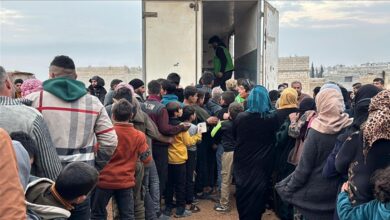
Most of the Syrian refugees in European and Western countries refuse returning to their country
Published by the European “schengen visa info” website, which specializes in immigration affairs, a new statistic confirms that two-thirds of Syrian refugees in Europe refuse to return to their country, as well as the vast majority of residents in Arab countries.
The website concerned with news of asylum in the European Union said in a report yesterday, Thursday, that 66% of Syrian asylum seekers in the European Union do not intend to return to their country.
The report added that more than 10,000 Syrians applied for international protection in the “European Union” group during the first two months of 2021, according to what the European Asylum Support Office indicated in the “Country of Origin Information” report.
According to the report, the number of requests submitted by Syrians doubled in the period from September 2020 to February 2021, compared to the previous six-month period.
Meanwhile, Syrian applications pending in the first trial reached 50,400 cases, an increase of 38 percent.
Regarding the desire to return, 1,600 Syrian participants from Germany, France, the Netherlands and Sweden stated that they would not return to Syria unless conditions were stable, according to a study conducted by The Day After Organization, according to the source.
The report also pointed out that 137 Syrians voluntarily returned to their homeland from Denmark in January 2020 in exchange for great financial temptations, while only ten Syrians out of 77,000 in the Netherlands agreed to return to their homeland.
In February and March 2021, the United Nations High Commissioner for Refugees conducted a survey that included 3,201 Syrians living in Egypt, Lebanon, Jordan and Iraq.
According to the results of the study, 90% of Syrians in those countries did not want to return to Syria within the next twelve months.
The three main reasons for lack of interest in return cited by respondents were lack of livelihood and work opportunities, lack of security and safety, and lack of adequate housing or other housing concerns.




